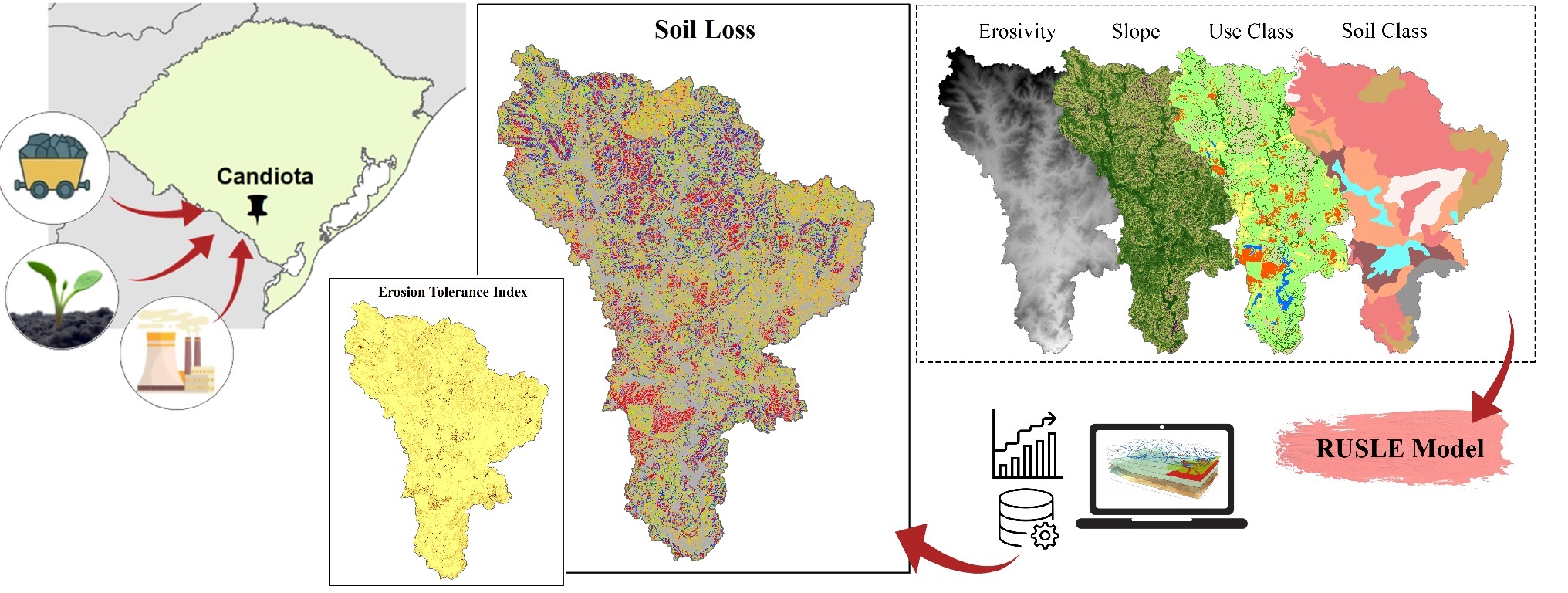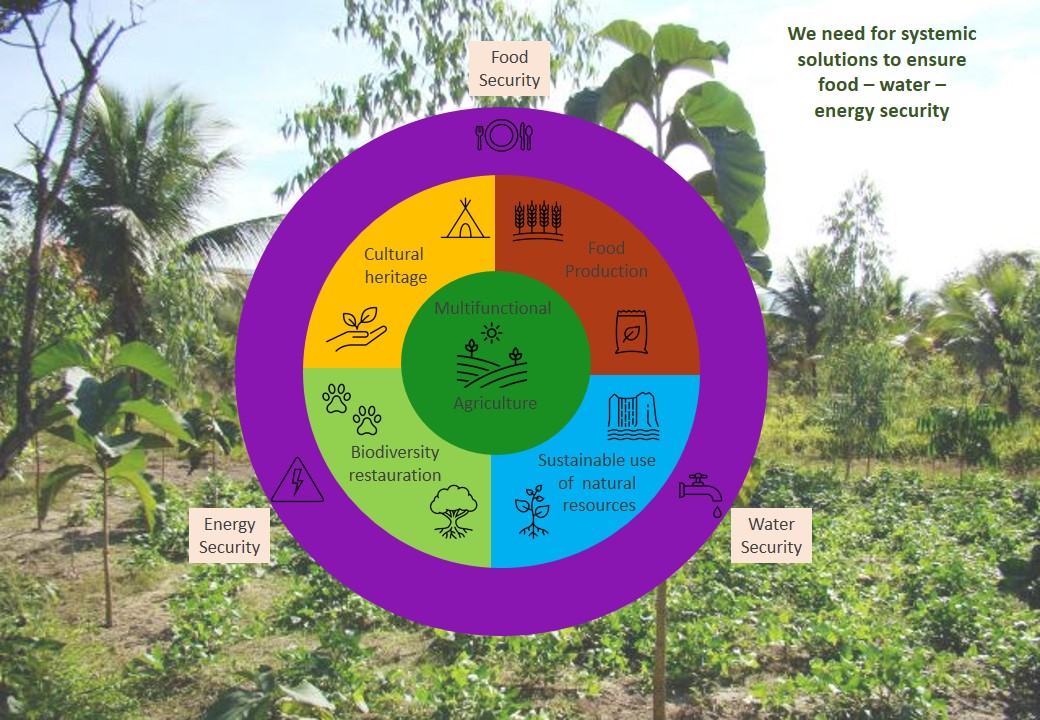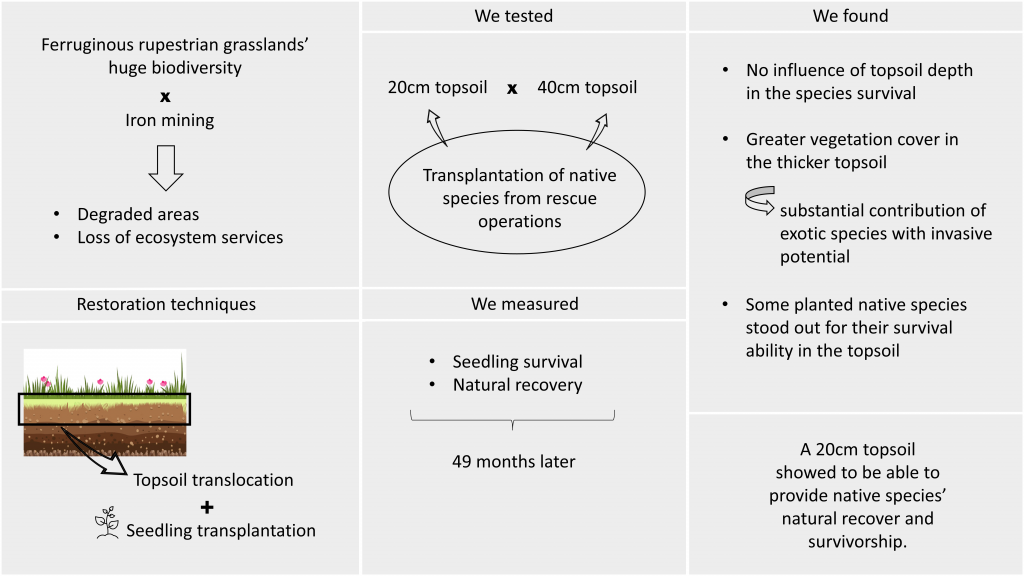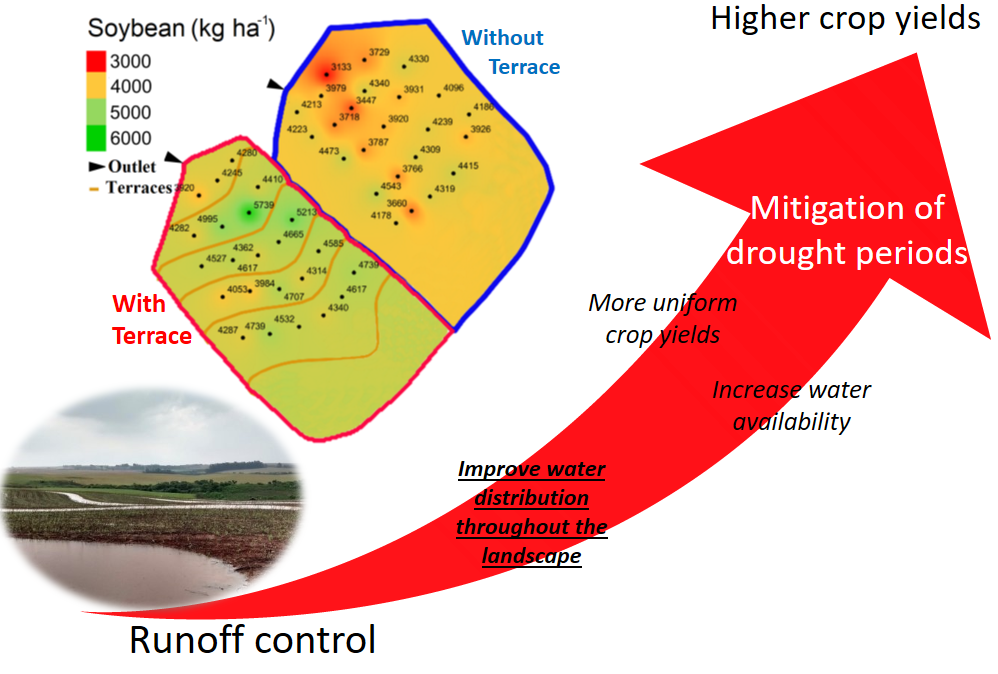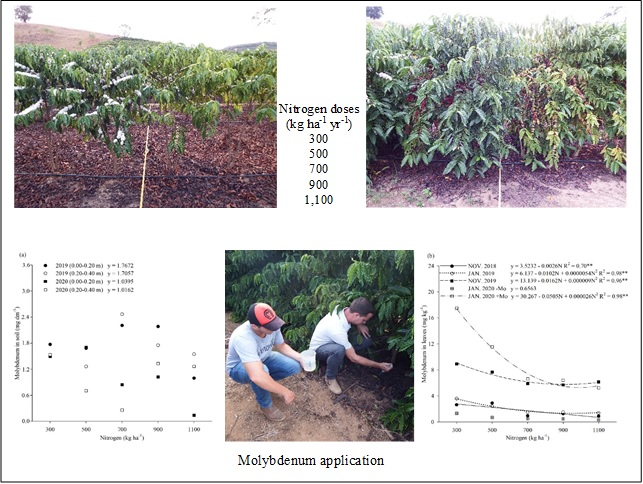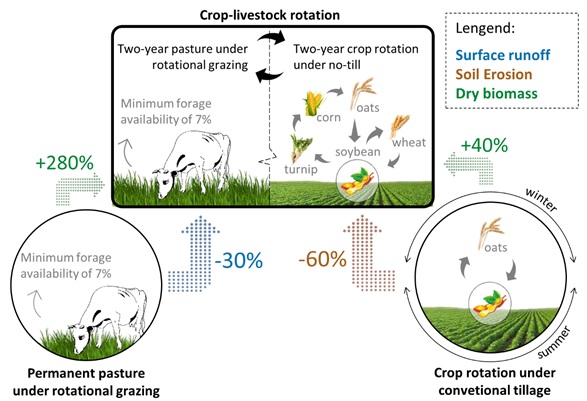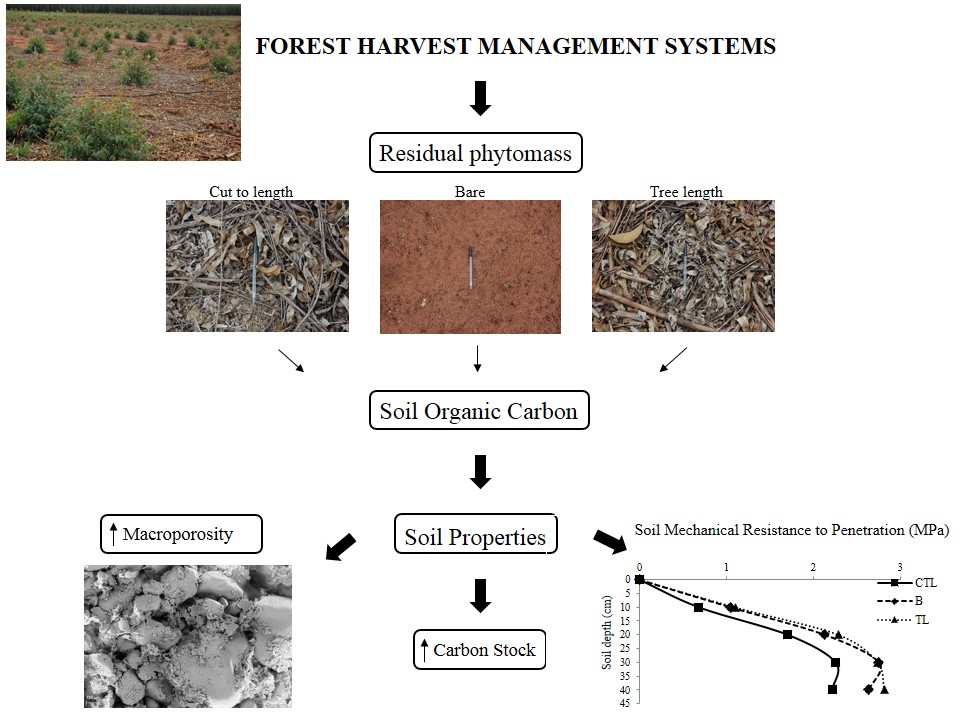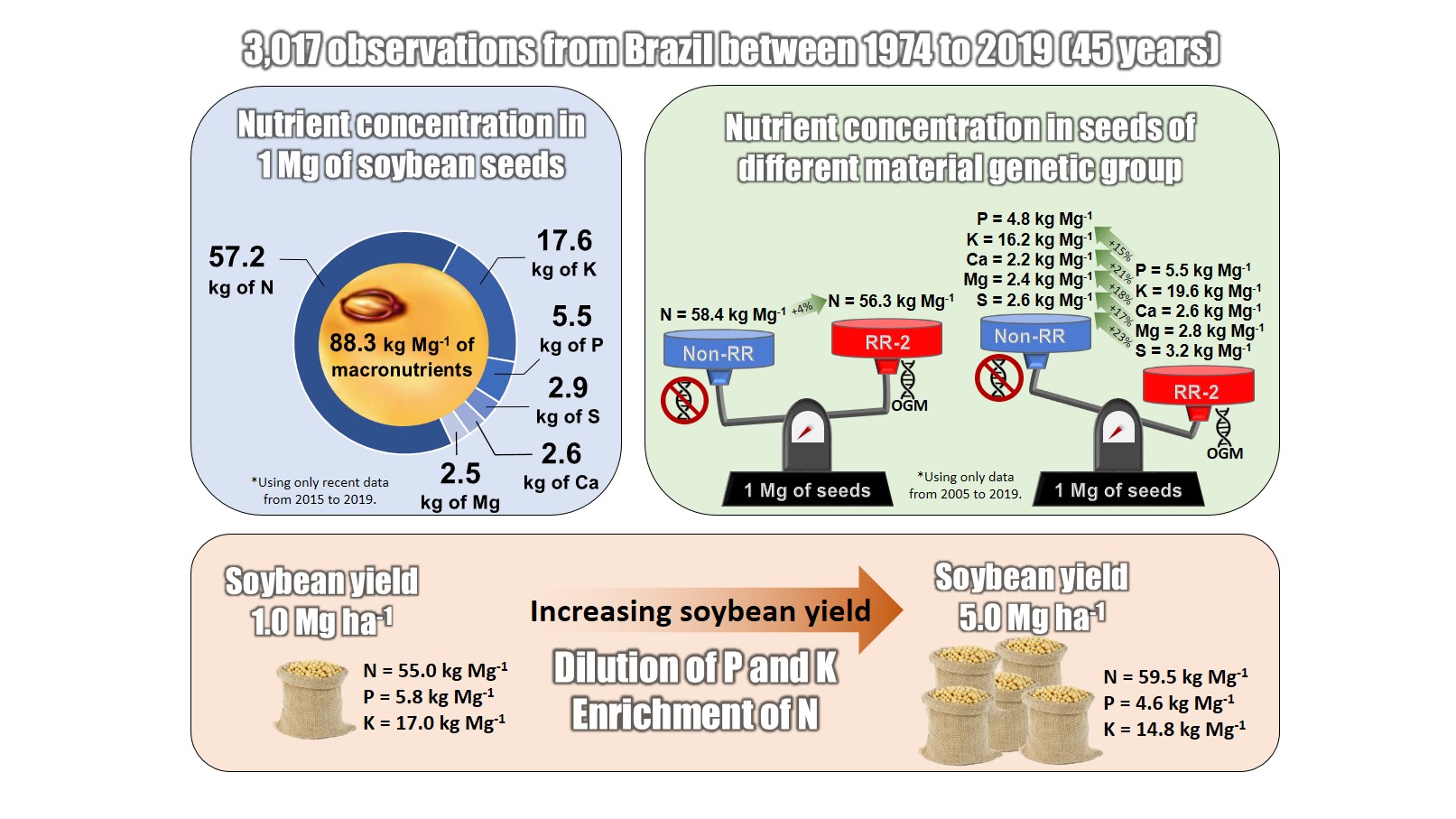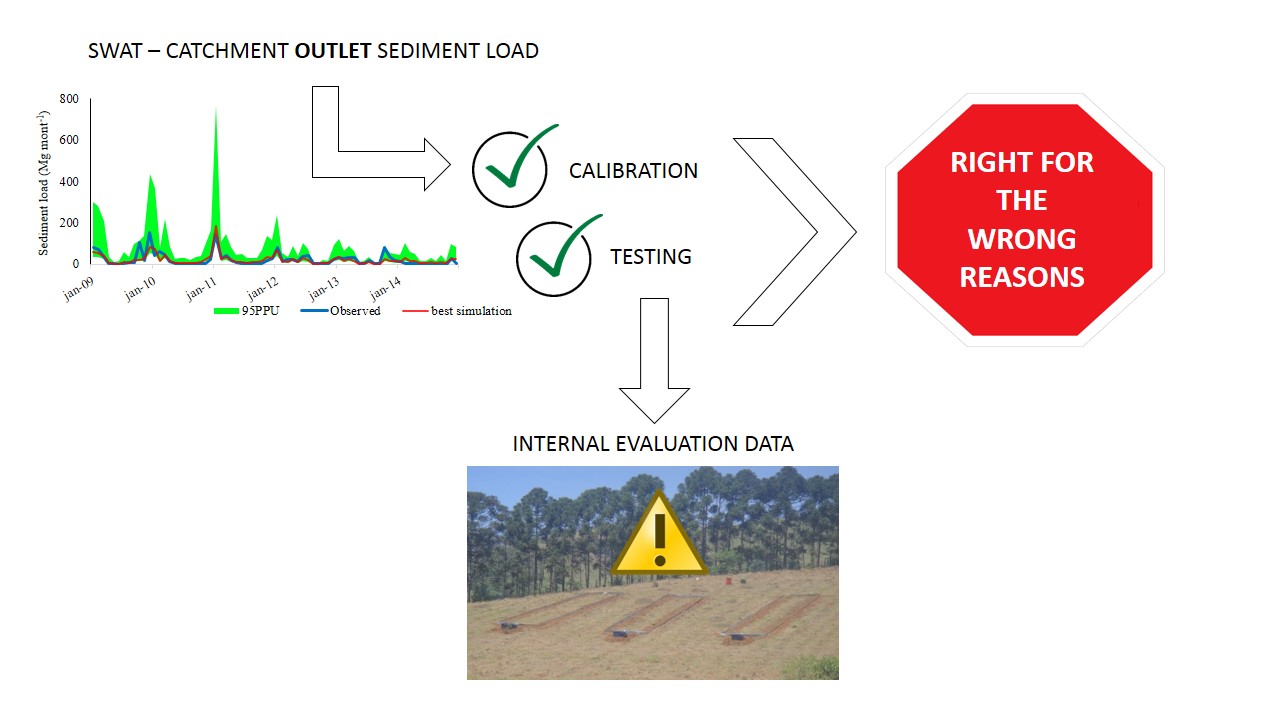Soil loss estimated by means of the RUSLE model in a subtropical climate watershed
24/nov/2021
ABSTRACT Erosion process occurs naturally, shaping the Earth’s surface. Soil loss can cause harmful effects to the environment when intensive anthropic activities occur. Mathematical models have been used as effective and less costly alternatives for identifying sites highly prone to soil loss, especially at the watershed scale. In Brazil, the Revised Universal Soil Loss Equation (RUSLE) is one of the most commonly used soil loss prediction models. The RUSLE requires information on soil erodibility, rainfall erosivity, topography, land use and […]
Interconnections among rural practices and Food-Water-Energy Security Nexus in the Atlantic Forest biome
24/nov/2021
ABSTRACT Global agricultural production is expected to double by 2050 due to both global population increase and changes in diets as a consequence of growing incomes. This also means more pressure on water resources, as agriculture accounts for 70 % of global water withdrawal and for energy production as the entire food supply chain accounts for about 30 % of total global energy consumption. Although there are ongoing discussions related to the sustainability of food, water, and energy sectors, integrating […]
Topsoil depth influences the recovery of rupestrian grasslands degraded by mining
24/nov/2021
ABSTRACT Close association of iron mining and ferruginous rupestrian grassland places this ecosystem in a special condition of vulnerability, with a large number of degraded areas requiring restoration. Seedling transplantation and topsoil translocation can be used to recover native vegetation in degraded areas. This study aimed to experimentally test the application of two different topsoil depths (0.20 and 0.40 m) in a degraded area. We assessed the vegetation’s natural recovery and the survival of transplanted native species from rescue operations […]
Managing runoff in rainfed agriculture under no-till system: potential for improving crop production
11/nov/2021
ABSTRACT Strategies to mitigate degradation and ensure food and water security are among the main challenges in agricultural development. Unconsolidated information about the positive impact of conservationist practices on productivity increase is fundamental for their adoption by farmers. This study evaluated if the saved rainfall excess in catchment with terrace generates higher soybean and corn yield due to greater water availability in the crop rooting zone. Experiments were conducted in southern Brazil during the agricultural years of 2016/17 (soybean) and […]
Soil chemical properties and nutrition of conilon coffee fertilized with molybdenum and nitrogen
11/nov/2021
ABSTRACT Molybdenum (Mo) availability is strongly affected by soil pH, which determines the dynamics of electrical charges and the adsorption of molybdate. This study evaluated the effects of nitrogen (N) and Mo application on the chemical properties of a Latossolo Amarelo (Oxisol) and in Coffea canephora nutrition and productivity throughout two productive cycles under field conditions. The experiment was conducted from June 2018 to May 2020. The experimental design used was in randomized blocks, in a 2 × 5 factorial […]
Soil physical properties and interrill erosion in agricultural production systems after 20 years of cultivation
05/nov/2021
ABSTRACT Agricultural management significantly influences soil physical properties and soil erosion. However, there are few studies investigating the long-term effects of agricultural management on soil erosion and physical properties. Here, we assessed the impacts of 20-year agricultural land uses under different management practices on soil physical properties and interrill erosion. This study was conducted on an experimental farm of the Embrapa Western Agriculture, Brazil, and the treatments consisted of soybean cropping under conventional tillage (CT) and no-tillage (NT), crop-livestock integration […]
Forest harvest management systems and residual phytomass affecting physical properties of a sandy soil
05/nov/2021
ABSTRACT Organic carbon introduced in soils, mainly through organic matter, has a relevant role in various soil properties and is particularly important in sandy soils. In these soils, the input of organic material is necessary to ensure the sustainability of production systems. This study aimed to investigate the changes in total organic carbon content and its effect on physical properties in areas under different harvest management systems (HMS) after the harvest of eucalyptus. The study was performed in December 2017 […]
Concentration and removal of macronutrients by soybean seeds over 45 years in Brazil: a meta-analysis
05/nov/2021
ABSTRACT A good soil fertility management for soybean production must consider the amount of nutrients that are exported by seeds. In recent decades, soybean yield has increased due to better crop management and genetic improvements, which may affect the amount of nutrients removed. Therefore, this study aimed (i) to analyze the relationship between the concentration of macronutrients in soybean seeds in Brazil with soybean yield and genotypes, and (ii) to update nutrient concentration values in soybean seeds for fertilizer recommendation […]
Assessing sediment yield and streamflow with SWAT model in a small sub-basin of the Cantareira System
05/out/2021
ABSTRACT Hydro-sedimentological models might be useful tools for investigating the effectiveness of soil and water conservation practices. However, evaluating the usefulness of such models requires that predictions are tested against observational data and that uncertainty from model parameterization is addressed. Here we aimed to evaluate the capacity of the SWAT model to simulate monthly streamflow and sediment load in the Posses creek catchment (12 km2), Southeast Brazil. The SUFI-2 algorithm from SWAT-CUP was applied for calibration, testing, uncertainty, and sensitivity […]
Soil chemical properties and wheat production in three Andisol with applications of materials from the cellulose industry
05/out/2021
ABSTRACT Soil acidity is one of the main factors that reduces productivity in agricultural crops, and it is corrected with materials that neutralize acidification. Among soils affected by acidity are those of volcanic origin. At least 30 % of agricultural soils in Chile are of volcanic origin, and acidity correction practices must be constantly performed. This study aimed to evaluate the effectively of two materials that may neutralize soil acidification and increase yield production in Chilean volcanic soils. An experiment […]

